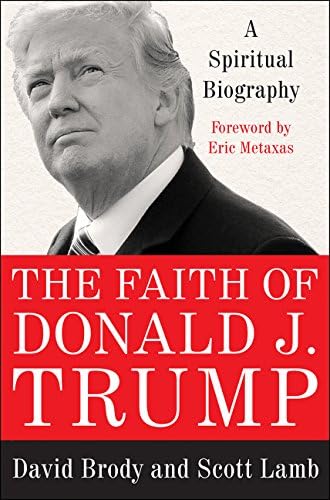The white evangelical attack on voting rights


After decades of electoral success based on being able to mobilize its base to vote, the religious right has run into a major problem, which is that it’s losing voters at a very rapid rate:
White evangelical Protestants now make up 14 percent of Americans, down from 23 percent in 2006, “the most precipitous drop in affiliation” for any religious group, according to a 2020 survey from the Public Religion Research Institute. Even though white evangelicals made up 34 percent of Trump’s voters, according to a Pew Research Center analysis of election data, their support wasn’t sufficient to propel him to reelection. “Without such broad support for Trump among White evangelicals, [Joe] Biden would have beaten him by more than 20 points,” the Pew analysts wrote earlier this year.
The response of white evangelicals to this has been exactly the same as that of the broader Republican party: if you’re being outvoted, make it as difficult as possible for your opponents to vote, by passing lots of laws putatively designed to combat the completely imaginary problem of systemic voter fraud, thereby — it’s like rain on election day — undermining the integrity of American elections, via voter suppression.
In early February, the Family Research Council’s president, Tony Perkins, led a discussion at the influential megachurch Cornerstone Chapel in Virginia with Michael Farris, a longtime conservative activist and now president of the Christian-right legal powerhouse Alliance Defending Freedom.
Declaring election integrity “vital for our future,” Farris claimed to have undertaken a “thorough study” of the 2020 election and to have found “constitutional irregularities in many, many states,” particularly in those where the election was close. He claimed the “central problem was the failure to follow the preestablished process in counting the votes” and insisted that if votes had been properly tallied, Trump would have won. Neither Farris nor his organization has ever provided proof of those accusations, and they did not respond to Reveal’s requests for Farris to share them.
The Family Research Council also deployed Kenneth Blackwell, its senior fellow for human rights and constitutional governance, who has long been a central player in the movement to limit voting access, dating back to his tenure as Ohio secretary of state, when civil rights advocates accused him of suppressing voters of color in the 2004 presidential election and helping Republicans keep the White House.
In a March appearance in the Family Research Council’s video series “Pray Vote Stand,” Blackwell, who is Black, called the For the People Act a “heist” and a “power grab” that would “stifle individual religious liberty and the centrality of God in our lives.” Mostly, Blackwell urged religious voters to stay engaged. “We must claw back the responsibility and the authority of local governments and state legislatures” to control elections or else, he contended, Democrats would create “one-party control much like they have in Cuba, Venezuela, and Russia.”
The trick here is undermine confidence in elections by unleashing a fire hose of false claims about “irregularities,” and then use the concerns raised by those claims to justify voter suppression measures.
Of course all this works only because white evangelicals simultaneously maintain radically contradictory views regarding their place in American society, believing at one and the same time that the majority of Americans are God-fearing Bible-believers, and that they are also an embattled minority — a righteous remnant always on the verge of being swept away by the godless dominant culture.
But the key point is that conservatives in general and white evangelicals in particular are finding it increasingly difficult to win elections at the federal government level, despite the entire electoral system being (legally) rigged to favor them at every term.
Obviously under these circumstances, even the very weak form of democracy bequeathed to us by the divinely inspired founding generation has got to go:
During this year’s Texas legislative session, it wasn’t the anti-abortion Heartbeat Act that was deemed the greater threat by Texas Democrats, but voter integrity legislation. The abortion bill, targeting not just abortion but anyone helping a woman in the state obtain one, made it through the legislature relatively unscathed and was signed into law May 19. Republicans’ attempt to pass a voter bill — including criminal penalties on election officials who send unsolicited mail-ballot applications and new powers for partisan poll watchers — required two special legislative sessions, after Democrats ran out the clock on the first bill, then fled the state for a month in protest.
At the first special session in July, many of the demonstrators on the statehouse grounds opposed the voting legislation. But Lori Gallagher of Williamson County, Texas, was there to show her support. The group she co-founded, the Texas Constitutionalists, describes itself as “grassroots conservatives with a mission to educate ourselves and our neighbors to be actively involved in Texas State and County government to secure our vote and restore our representational Republic.” But she saw its mission in starkly religious terms.
“I believe that the divine hand of providence was present when our constitutional and founding documents were formed,” she said. “I believe that’s the divine intersection between voting rights. The people’s voice — that comes from God. Your freedom comes from God. Liberty comes from God.”
Inside the hearing room, with just two minutes to speak, Don Garner, executive director of the Texas Faith & Freedom Coalition, focused more on politics, echoing Christian-right talking points that have become familiar this year. Election integrity is “foundational to the freedoms we enjoy,” he declared. “Nothing suppresses voting more than the erosion of trust or confidence in the election process itself.”


